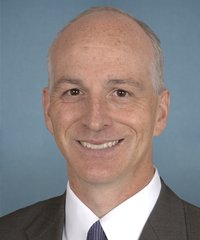
Adam Smith was born on June 15, 1965, in Washington, D.C. Adam was raised in SeaTac, Washington where his father, Ben, worked as a ramp serviceman at SeaTac Airport and was active in the local Machinists’ Union. His mother, Leila, stayed at home, raising Adam and his two brothers. Adam attended Bow Lake Elementary, Chinook Middle School, and Tyee High School, graduating from Tyee in 1983.
After a year at Western Washington University, Adam transferred to Fordham University, where he worked his way through college loading trucks for United Parcel Service and graduated in 1987 with a degree in Political Science. Following his graduation, Adam attended the University Of Washington School Of Law, and earned his law degree in 1990. He later worked in both private and public practice, first as a lawyer at Cromwell, Mendoza and Belur in 1992, and then as a prosecutor for the City of Seattle from 1993-1995. As a prosecutor, Adam focused on drunk driving and domestic violence cases, and in 1996, went on to work as a judge pro tempore.
I support a comprehensive national security approach, fully integrating and resourcing our diplomatic, development, and defense capabilities. We must execute a national security strategy that counters violent religious extremism and anti-American sentiment, builds partnerships around the world, work closely with friends and allies, and advances programs to create a more just, peaceful, and stable world. This means policies that understand and respect other nations and encourages self-determination, democracy, human rights, gender equality, economic development, and much greater access to education, health care, and jobs. This also means an increased focus on promoting the American values of democracy and an economy that also respects people and cultures.
As Chairman of the House Armed Services Committee, I have unique insights into today’s foremost national security issues throughout the Middle East, including the war in Afghanistan, as well as our larger efforts to stop the spread of violent extremist groups and their ideology around the globe. Understanding the need for a holistic approach to national security, I recognize the importance of poverty reduction, access to education, sustainable global markets, diplomatic engagement, and good governance to enable our pursuit of stable international partners.
Diplomacy
Development